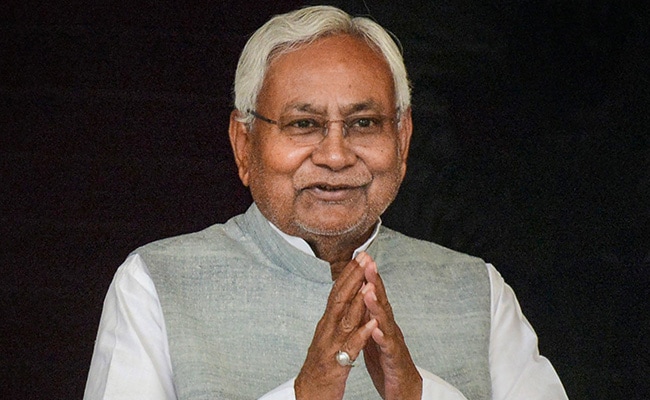
Janata Dal United leader Nitish Kumar will take oath as the Chief Minister of Bihar for the eighth time today, a day after ditching the Bharatiya Janata Party to form a grand alliance with the Rashtriya Janata Dal, Congress and smaller parties.
Following are the seven previous occasions when Nitish Kumar took oath as Chief Minister:
Nitish Kumar became the Chief Minister for the first time on March 3, 2000 for seven days. In the 2000 elections, neither RJD nor the National Democratic Alliance - BJP, JDU and the Samata party - crossed the half-way mark of 163 seats. The then Governor VC Pande, nevertheless, invited Mr Kumar to form the government and prove his majority in the Assembly. However, he resigned on March 10 before the vote of confidence in the Assembly.
In the October-November 2005 polls, the JDU-BJP alliance won 143 seats, 21 more than the majority-mark in the truncated Assembly. On November 24, 2005, Mr Kumar took oath as the Chief Minister for the second time. This was the only time when Mr Kumar completed his full five-year term with the BJP as the junior partner.
On November 26, 2010, Mr Kumar was sworn-in as Chief Minister for the second consecutive time. The JDU won 115 seats, while ally BJP won 91 seats in the 243-member Assembly. In June 2013, however, the JDU parted ways with the BJP after Narendra Modi emerged as the main face of the saffron party. He continued to be the Chief Minister till May 2014 when he resigned after the JDU won 2 out of 40 Lok Sabha seats in Bihar.
Mr Kumar returned as the Chief Minister after a gap of nine months on February 22, 2015, calling his 2014 decision to quit a "mistake". However, his return was not smooth. Jitan Ram Manjhi, his chosen successor, refused to step down. Manjhi, after being expelled from the party for anti-party activities, finally stepped down as Chief Minister before the floor test.
Ahead of the 2015 polls, Mr Kumar teamed up with old rivals RJD and Congress to form a 'Mahagathbandhan' (Grand Alliance) against the BJP. The alliance decimated the saffron party in the elections, winning 178 out of the 243 seats. However, JDU's seat tally fell from 115 in 2010 polls to just 71, with RJD emerging as the single-largest party with 80 seats. On November 20, 2015, Mr Kumar was sworn-in as the Chief Minister while RJD's Tejashwi Yadav became the Deputy Chief minister.
However, Mr Kumar broke ties with the RJD in July 2017 after his deputy Tejashwi and RJD supremo Lalu Yadav were named in a corruption scandal. After quitting the 'Mahagathbandhan', Mr Kumar returned to BJP-led NDA fold on July 27, 2017, when he became the Chief Minister for the sixth time. Sushil Kumar Modi of the BJP became his deputy in the new cabinet.
On November 16, 2020, Mr Kumar took oath as the Chief Minister for the seventh time. In the 2020 polls, the NDA alliance (JDU, BJP, Hindustani Awam Morcha and Vikassheel Insaan Party) won 125 seats, thereby securing a slim majority in the 243-member Assembly. The RJD once again emerged as the single-largest party. While BJP won 74 seats, JDU plummeted to just 43 seats. During his seventh term as Chief Minister, Mr Kumar had two BJP deputies - Tarkishore Prasad and Renu Devi.

